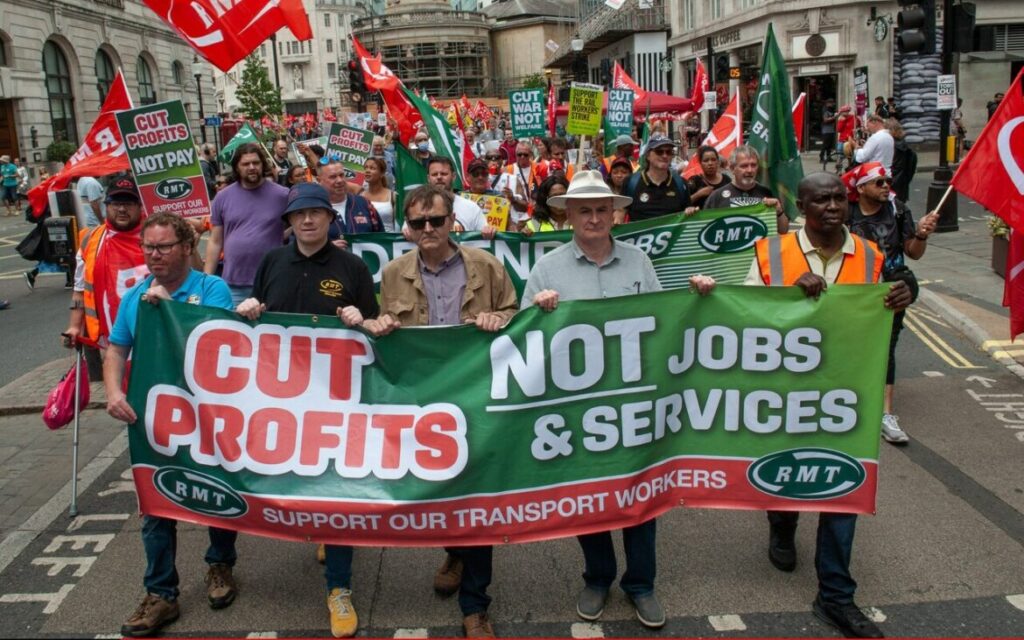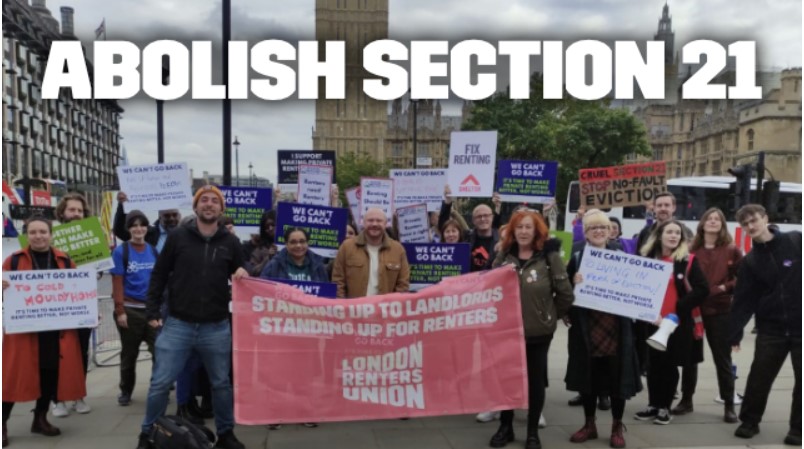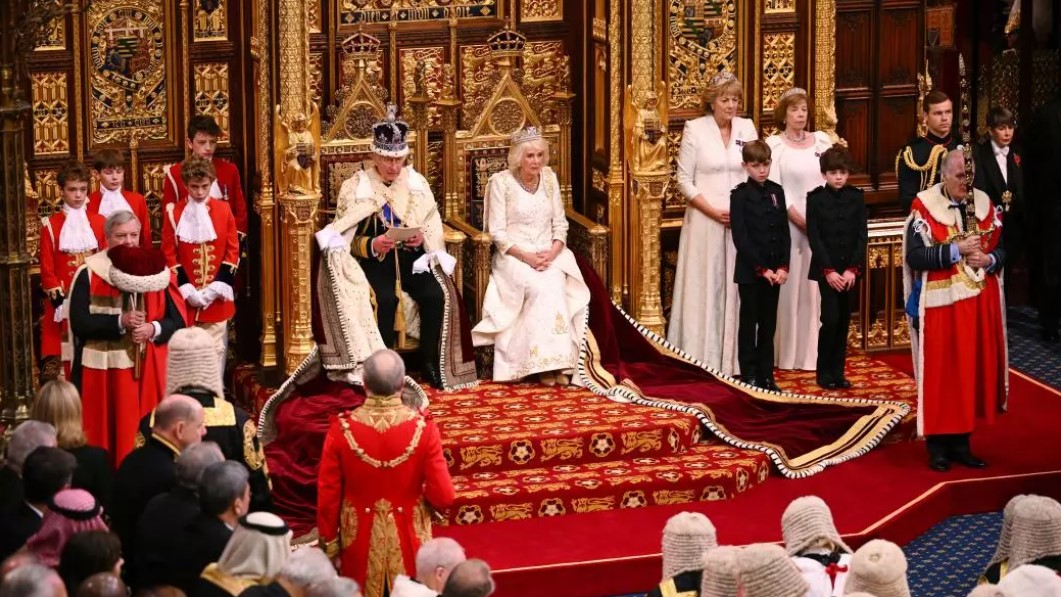Many workers will have breathed a sigh of relief when the odious Tory government was crushed a couple weeks ago and will have looked forward to seeing what the new Labour government will actually do with its huge majority. The King’s Speech last Wednesday, amidst all the absurd rituals, contained around 40 bills, including many that socialists would support. But taken as a whole, they are a missed opportunity to deliver the real, transformative change for which people yearn.
A recent article (Broken Britain) by the socialist economist, Michael Roberts, set out the depth of the economic crisis facing British capitalism and the appalling consequences for working people, both in terms of living standards and the near-collapse of public services. This is not a time for timidity or half-measures.
Of course, another opportunity for significant changes will come from the next budget which will draw up plans for spending and taxation. But here too, Starmer and Reeves have tightly boxed themselves into “iron-clad fiscal rules” which will block any radical measures to tackle the gross increases in inequality and poverty, the collapse in living standards, and the desperate crises in health and education and other public services.
The government have also tied themselves and later governments to having every budget assessed by the Office of Budget Responsibility (OBR) – which is yet another layer of possible delay and blockage to any future radical changes.

[Photo – Lauren Hurley/No 10 Downing Street]
The government have already stated that they will keep the vicious, two-child benefit cap, which has been one of the main drivers forcing children into poverty. This decision has been widely condemned and opposition is by no means restricted to the left. It is good to see that an amendment to the King’s Speech on the two-child limit has been moved by a group of Labour MPs, although it is unlikely to be passed.
The failure to act on such a fundamental issue should ring alarm bells throughout the Labour movement. The commitment in the Speech to free breakfast clubs in primary schools is merely a sop to buy off the government’s critics, as is the decision to create a ministerial “taskforce” to deal with poverty.
Welcome proposals – but timid
Of course, the Speech contained some proposals that socialists will broadly welcome. Chief among these is the long-awaited “New Deal for Workers”. This includes measures to give a range of employment rights to workers from day one, to abolish “exploitative” zero-hour contracts and “fire and rehire”, and to grant more rights for trade unions to organise in workplaces.
These would all be improvements that socialists would support, although the measures are needlessly timid, given the enormous majority that the government enjoys. There are legitimate concerns that giving workers the “right” to work a zero-hours contract if they “want to” will open the door to low paid and precarious workers being pressured by unscrupulous bosses into “volunteering” for such contracts.
It has also been suggested that the fire and rehire ban may contain get-out clauses to permit the practice when a company is “forced” to restructure. That is enough to drive a coach and horses through the whole idea of a ban.
On the issue of giving workers employment rights from day one, this measure may also make it subject to ‘probationary periods’ which could easily allow bosses to subvert the intentions of the new bill. It is not clear, either, whether the proposals properly address the scandal of fake self-employment.
The devil is in the detail and all trade unions, but especially those affiliated to the Labour Party, need to be vigilant and to exert maximum pressure on the Labour leadership, both inside the party and in wider protests, to force concessions and strengthen the proposals.
It is not clear whether the planned additional rights for trade unions in work places will also involve the full repeal of the recent, draconian Minimum Service Level legislation or of the 2016 Trade Union Act, which set up unreasonably high quotas for ballots for industrial action. Socialists should push for the full repeal of these laws and of all the Tory anti-Trade Union laws, going back to Thatcher in the 1980s.
Nationalisation – limited proposals
The planned setting up of a publicly-owned Great British Energy to focus investment in renewables sounds OK as far as it goes. But if this just becomes a vehicle for levering in matched private investment, then we have to ask, why would the private companies invest? Capitalists only invest where they can make a profit and profits are ultimately made at the expense of workers.
If private companies have to be given financial incentives to invest, it will inevitably be at the expense of ordinary people and will undermine living standards and necessary government expenditure in other areas. It is the private investors who will dictate to the government what they want and not the other way round.
The energy companies have ripped us all off for too long to deserve compensation. Socialists should call for the nationalisation of the assets of the energy companies with compensation only on the basis of proven need: for example, where public authorities and pensions bodies have shares. That would allow a socialist plan to be drawn up to meet the net-zero obligations and to rationally meet national energy needs, as well as keeping bills down for consumers.
The Speech talked of creating a new Great British Railways, to more effectively co-ordinate rail services, including ticketing. The government proposes to allow the train operating companies to be taken into public ownership at the end of their current franchises, although most of them have a ‘release’ clause that the government could implement if it so wished.

[photo -workdaymagazine.org]
We should note, however, that the proposals for rail do not include a commitment to nationalise these companies on principle and they still allow for some private companies to operate, if they are judged to ‘deliver’ a service. Labour members should back the rail unions in calling for the full public ownership of the entire rail system – the track network, operating companies, stations, rolling stock companies and cleaning and catering services, to provide a fully integrated rail system, without the blatant profiteering.
Giving powers to local authorities or mayors to municipalise local bus services is an excellent reform, and long overdue, although the authorities themselves do not have secure finances and some are facing bankruptcy.
Disgracefully, there are no plans to nationalise the water companies, in spite of numerous scandals and sewage pouring into our rivers. The government plans to beef up the powers of the water regulatory authorities and to limit bonuses to staff, but why not simply take these parasitic companies back into public ownership, deprive them of their profits and use the money to massively invest in the water services, as well as lowering bills?
Since privatisation, the water industry has been plundered, with tens of billions taken out of the sector in profits, while companies, with minimal investment in infrastructure, have had debt piled on them. This is a perfect example of an industry that should be taken over without compensation.
Housing
On housing, the government have a target of building 1.5 million homes in the next five years, including more “affordable” and social housing. Every worker knows that “affordable” is a word bandied about for years and when it comes to housing it actually means “unaffordable”. That has to change. Also, the proposals are very light on the detail of how they are going to ‘incentivise’ the private construction companies to meet these house-building targets.
As with renewable energy, building companies and developers will only invest if they can make a handsome profit, and unless this is guaranteed or underwritten by government, they simply will not co-operate, especially in building any social housing. If they can make more money speculating on land and keeping prices up by scaling back their building plans, then they will do so.
The focus is on centralising powers to overrule local objections to house building while giving more planning powers to regional and metropolitan mayors. But to get large numbers of houses built, let alone the vastly higher number of houses that are actually needed, it will require a national mass house building programme, working with local authorities, through the nationalisation of land and the construction companies. That is the only way to get a co-ordinated push to train the necessary workforce with the correct construction skills, and to build millions of high-standard homes, after decades of decline in the industry.

Finally the King’s Speech promised a ban on ‘no-fault’ evictions of renters under section 21 of the Housing Act, a measure that can be whole-heartedly supported. But, again, it is vital for renters campaign groups, trade unions and Labour Party members to maintain pressure on government to prevent any backsliding or compromises with the lobbyists for private landlords, many of whom are MPs themselves!
Local authorities should be given the powers to introduce rent caps, so that no families are expected, as they are now, to pay a huge proportion of their income for a roof over their head. Neither should renters have to live in substandard housing, in a poor state of repair, paying a fortune to profiteering landlords. Such properties should be taken over by councils or mayors, brought up to decent standard by local authority workforces, and used to meet housing need.
Law and order – close scrutiny needed
All socialists will welcome a commitment to “halving” violence against women and to tackle spiking of drinks, domestic violence rape and sexual assault – although it should obviously only be an interim target towards eliminating this social evil altogether. However, again, there is little in the way of details or of any proposed funding allowed under the “iron-clad fiscal rules” to make this happen!
Proposals to tackle anti-social behaviour will concern many, not because such behaviour can be condoned, of course, but because Starmer, in particular, has proved, beyond all doubts, that he owes his first loyalty to the forces of the state. There is a suspicion that like his predecessor and role model, Tony Blair, he may use issues like anti-social behaviour to create authoritarian new laws that ride roughshod over civil liberties and any proposals on new criminal laws will need to be closely scrutinised and resisted if necessary.
The same is true with regard to the plans to get tough with people-smuggling gangs – cracking down on “preparatory offences” of planning or fundraising for future people-smuggling operations. We do not support those who ruthlessly profiteer on people’s misery, but anything Starmer brings forward will have to be carefully monitored to see whether he tries to use this issue to grant more dangerous powers to the state that can be used against the workers’ movement and other campaigners.
If Keir Starmer and new Home Secretary, Yvette Cooper, really want to deal with the problem of desperate people crossing the Channel in boats, they should focus attention on establishing safe and secure routes for asylum seekers, so that they no longer need to take such appalling risks.
The fact that a “Hillsborough Law”, which places “a legal duty of candour” on public servants even needs to be passed is simply astonishing: one would have thought that there should be no need to have a legal requirement for public servants not to lie to government or to the courts! The Post Office scandal, however, shows that it seems necessary and needs to be supported.
Equalities
The Kings Speech contained measures to formally extend equal pay legislation to disabled people and ethnic minorities, but there is only a draft bill at present, so the danger is that it may be watered down during “consultation”. The Speech also suggested the government would update the Mental Health Act and how people can be treated or detained, but again, this is only a headline and the fear is that under Starmer, we may find extra authoritarian clauses added in.
Labour’s record on trans people’s rights is already, after just two weeks, deeply concerning. Wes Streeting, the new Health Secretary, has not only fully endorsed the biased Cass Review into the health care of trans young people, he has even suggested making permanent the last spiteful act of the Tories, days before the election, to temporarily ban puberty blockers for trans youngsters completely and to ban private medical practices from prescribing them.

Given yet another betrayal from Wes Streeting, the “commitment” in the Speech to ban conversion therapy including for trans people, is looking very fragile indeed. It is only a “draft” bill in any case, so is open to extensive consultation, which really means that it will be susceptible to the pressure from the Tories, a deeply transphobic media and assorted culture warriors. These people want to exclude trans people from the ban or to leave loopholes which can be exploited by transphobic “therapists” or religious bodies.
Notably, Labour’s manifesto commitment to simplify the process of obtaining a gender recognition certificate (GRC), which stopped well short of self-ID anyway, seems to have been kicked into the long grass. It is essential to campaign to try to counter the influence of the transphobic mob.
Restrictions on adverts of junk food and high energy drinks to children should be broadly welcomed. However, the bill to ban smoking for anyone born after 2008, is less clear cut. While the principle of discouraging smoking is correct, Rishi Sunak’s idea, now adopted by Starmer, flouts the fundamental principle of equality before the law, since smoking will in future be illegal, say, for a 29-year-old adult standing next to a 30-year-old who can legally smoke. It remains to be seen whether it is even enforceable.
Revolting subservience
The whole pomp and ceremony of the state opening of Parliament is, of course an archaic and revolting display of subservience, as MPs in the Commons are summoned by ‘Black Rod’ to traipse off to stand at the back of the House of Lords, to hear King Charles’ “Gracious Speech”.
It reminds us, however, what all this ridiculous flummery represents. It is not just there for tourists; the monarchy and the House of Lords are there, if necessary – and it may be necessary – to thwart any plans put forward by a more radical government that challenge the interests of the Establishment. At least Starmer included in the Speech a bill to end the 1000-year-old scandal of the hereditary peers – which is the absolute minimum reform needed! The monarchy and House of Lords have no place in any democratic society and both should be abolished.
Many of the proposals in the King’s Speech are useful, if very mild, reforms, for which the Labour and trade union movement needs to fight – not only to prevent them being watered down but, better yet, to extend them. But this government will ultimately be judged by working people on whether it delivers long-awaited improvements in living standards, in housing, on poverty and low pay, and in the quality of public services, especially the NHS and education.
As long as it accepts the logic of capitalism, the big companies, banks and finance houses that dominate the economy will force this Labour government to put profit before the needs of working class people. That reality means that the government will inevitably set itself up for a conflict between itself and those who previously supported it.



